Reading comprehension Normal Punctuation Worksheets for Ages 7-8
5 filtered results
-
From - To
Boost your child's reading comprehension skills with our engaging Normal Punctuation Worksheets designed specifically for ages 7-8. These worksheets provide a fun way for young learners to practice essential punctuation skills while enhancing their understanding of sentence structure and meaning. By using these resources, kids will master the use of periods, commas, and other punctuation marks, improving their overall reading fluency. Each worksheet features age-appropriate texts and exercises tailored to foster critical thinking and comprehension. Ideal for schools or at-home learning, our worksheets support your child's literacy journey, making reading both educational and enjoyable. Start exploring today!
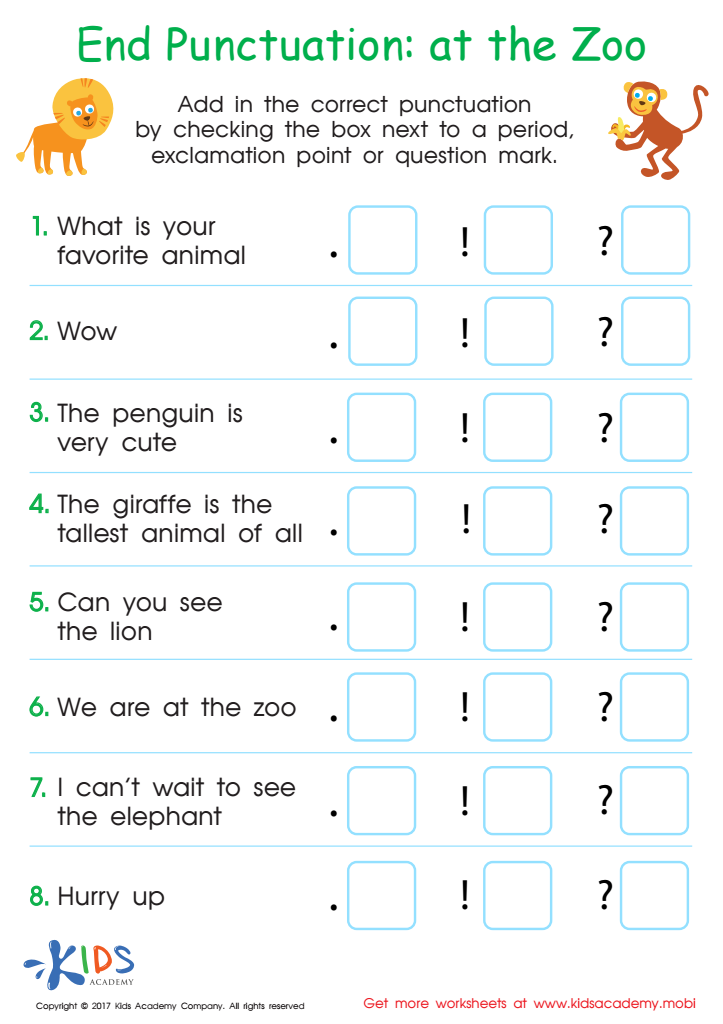

End Punctuation: At the Zoo Worksheet
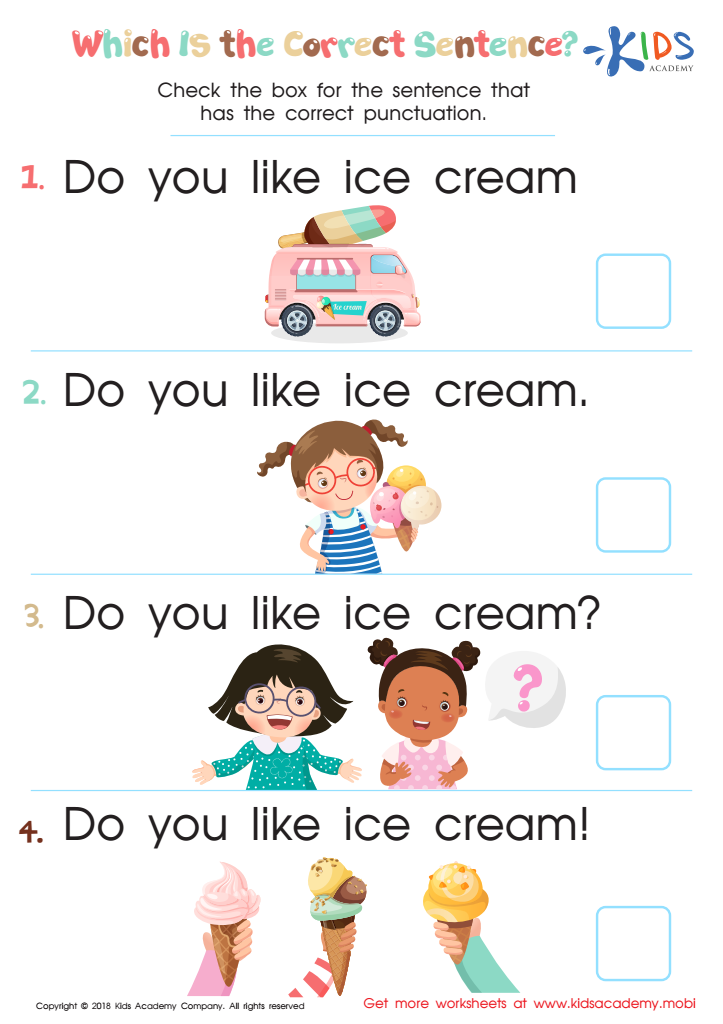

Which is the Correct Sentence? Worksheet
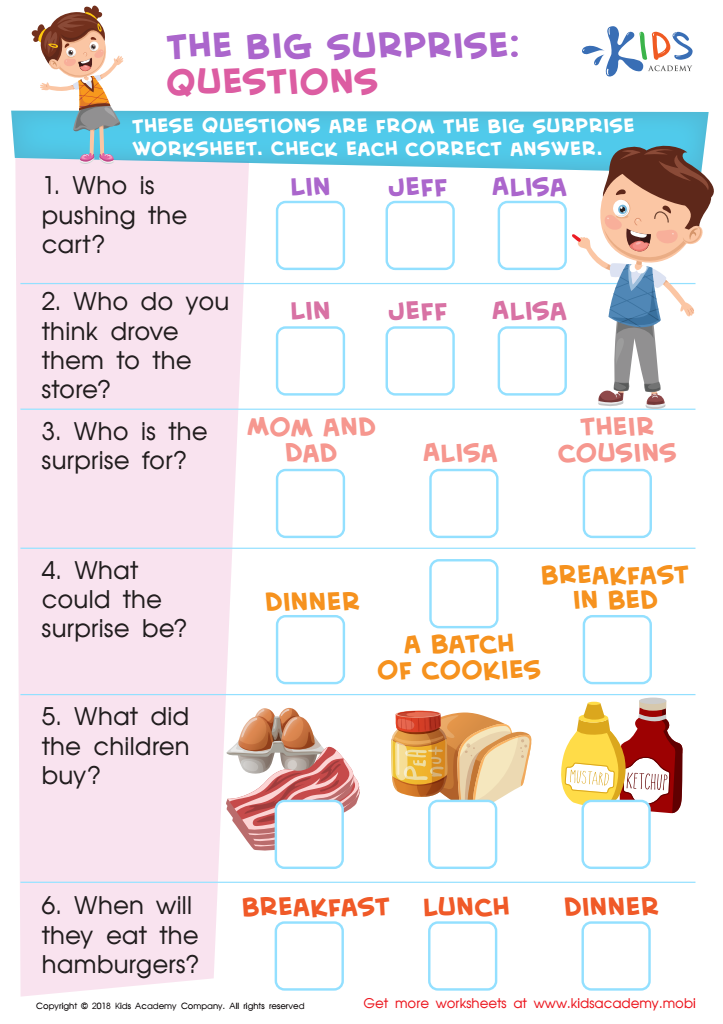

The Big Surprise: Questions Worksheet
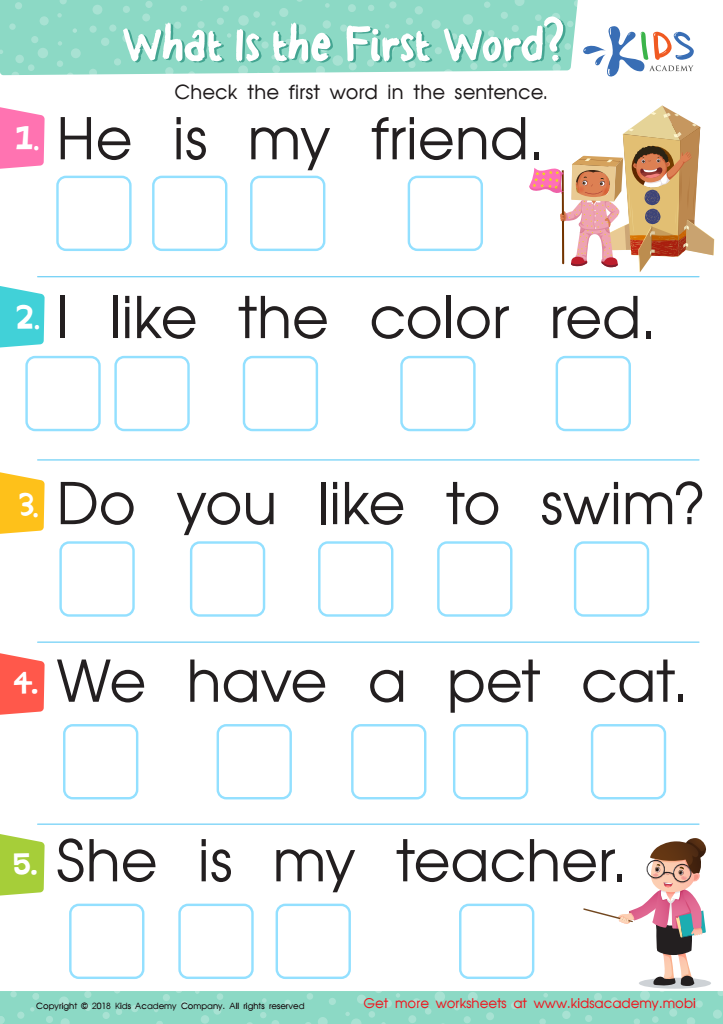

What is the First Word? Worksheet
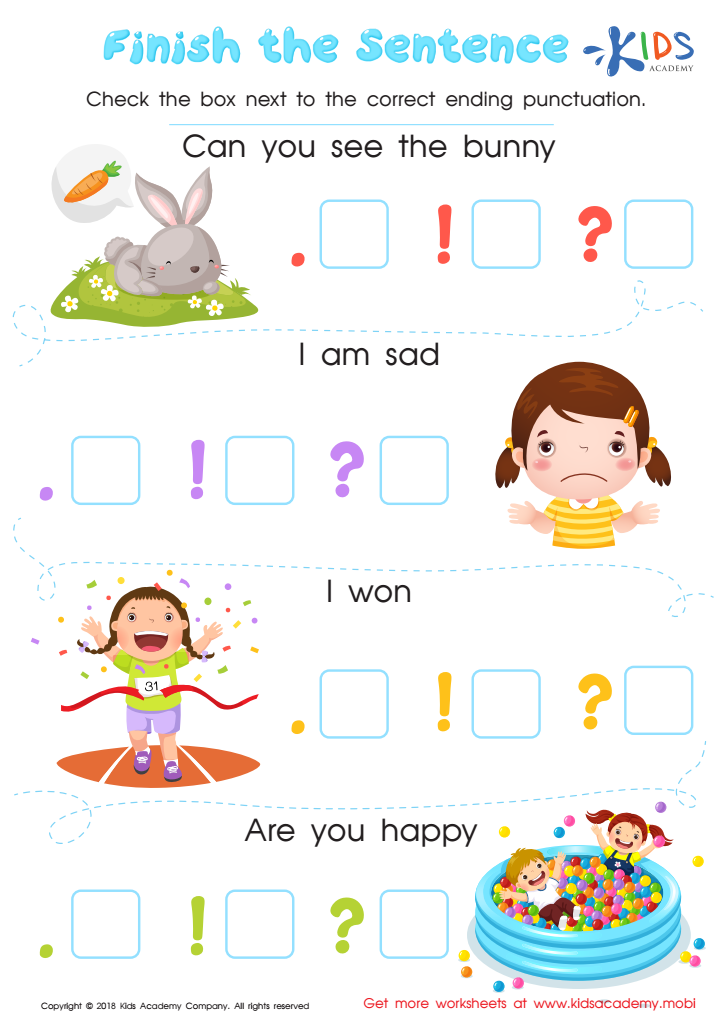

Finish the Sentence Worksheet
Reading comprehension is crucial for children ages 7-8 because it forms the foundation of their overall academic success. At this age, children transition from learning to read to reading to learn. Understanding text isn't just about decoding words; it's about grasping meanings, connecting ideas, and retaining information. Effective reading comprehension skills empower students to engage with diverse subjects—science, history, and literature—all of which demand solid interpretative abilities.
When parents and teachers prioritize fostering reading comprehension, they invest in their child's cognitive development and emotional growth. Good comprehension skills enhance critical thinking, allowing children to analyze and make inferences, traits essential for effective problem-solving both in school and in life.
Moreover, students with strong reading comprehension skills tend to feel more confident in class, participate more actively, and achieve higher grades, which builds a positive feedback loop promoting further learning engagement.
Furthermore, in today's information-rich world, nurturing children's ability to understand and evaluate texts is more important than ever. Parents and teachers play a pivotal role in guiding children through this process, supporting their journey towards becoming independent, thoughtful readers and lifelong learners. Investing time in reading comprehension today lays the groundwork for future educational success and personal growth.
 Assign to My Students
Assign to My Students














